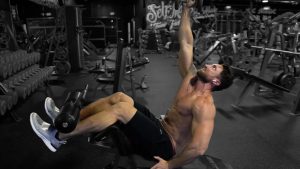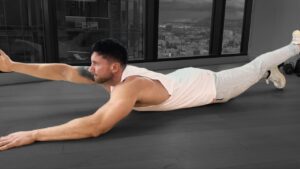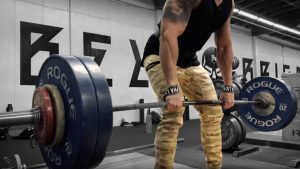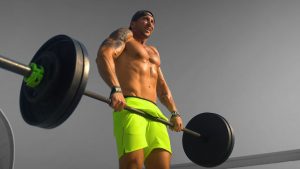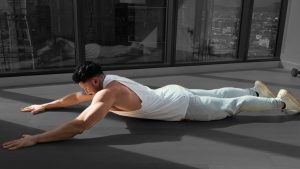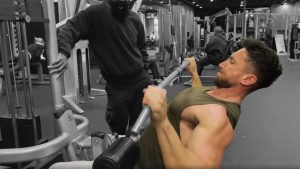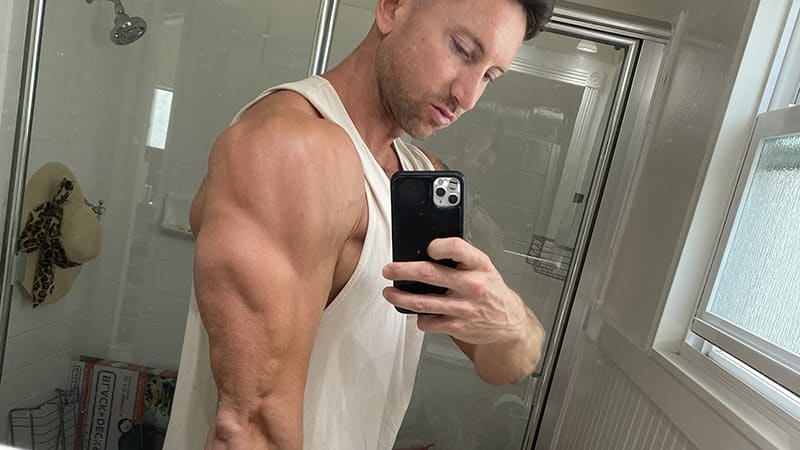
The biggest marker of human strength and fitness has always been large biceps. Surprisingly enough, the muscle is quite important and does more than just show off your progress at the gym. It helps in everyday activities and building strength in your core and arms. Without your biceps, you're not opening any jars.
Keeping your biceps toned and healthy should be a priority, and the best way to do this is through exercise, specifically biceps curls & bicep curl variations! This exercise especially targets the biceps and bicep peak. It also helps strengthen your wrists and other vital muscles in your arms.
Benefits
There are multiple benefits to the biceps curl that go beyond being able to flex. Here are some extra benefits that you may not have thought about!
Standard Curl & Bicep Curl Variations
All exercises have more effective versions of themselves. The simple versions have their intended effect, but the different variants allow for a challenge.
In the interest of better building muscles and providing a challenge for yourself, here are some biceps curl variations you have to try!
The Standard Dumbbell Bicep Curl
The dumbbell curl is the base standard for all biceps curls. The starting position for this dumbbell curl can be either standing or sitting.
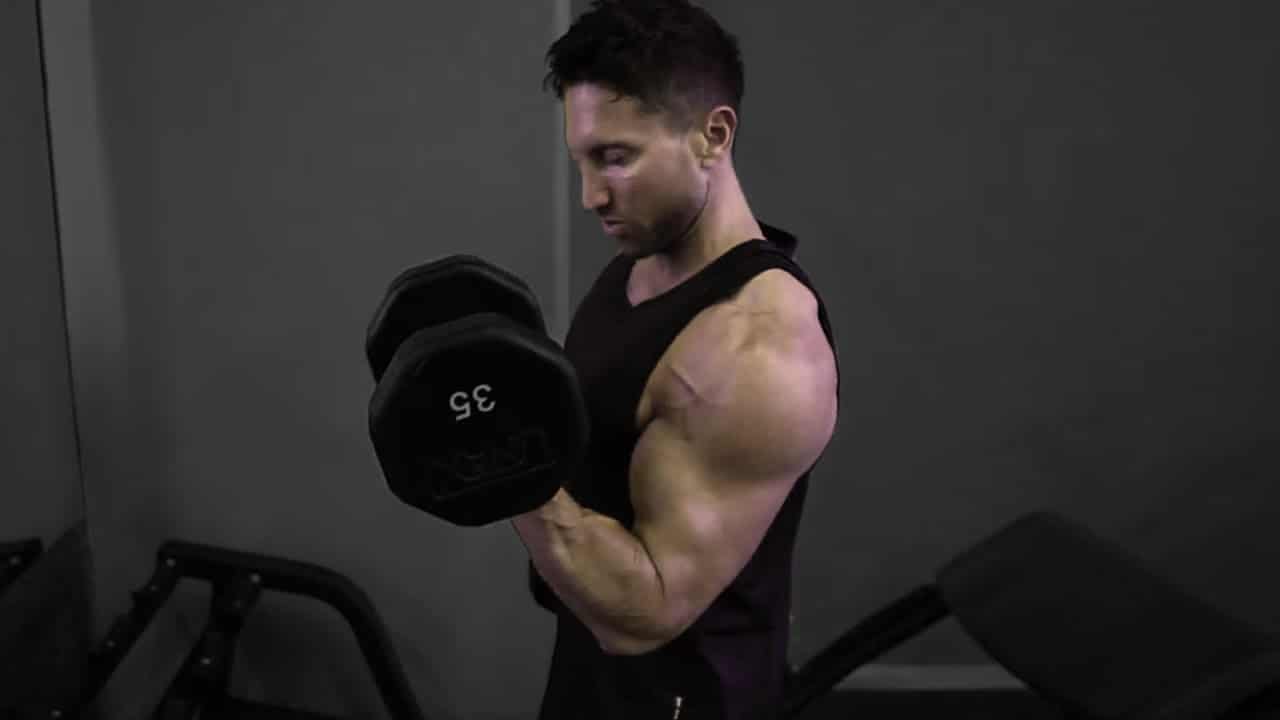
- 1Keep your arms fully extended at the sides.
- 2Grip the dumbbells with an underhand grip.
- 3Curl the dumbbells up toward the shoulder.
- 4Do not bend your elbow with the weight; instead, keep the bend as small as possible.
- 5When lowering the weight, flex your elbow and return to the starting position.
- 6You can lift the weights in tandem or one at a time.
Elbows Behind The Body
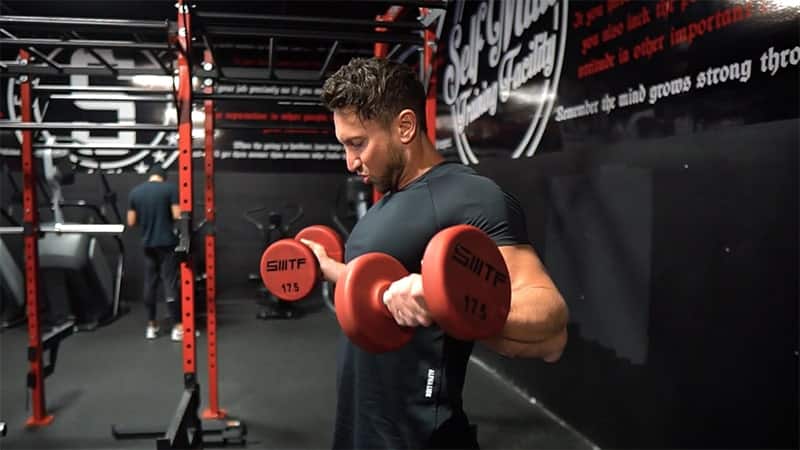
- 1Take a pair of dumbbells and stand up straight.
- 2Keep the dumbbells by your sides with elbows behind the back.
- 3Open up your arms and supinate the wrist.
- 4Curl the dumbbells up, contracting the biceps up top.
Elbows In Front
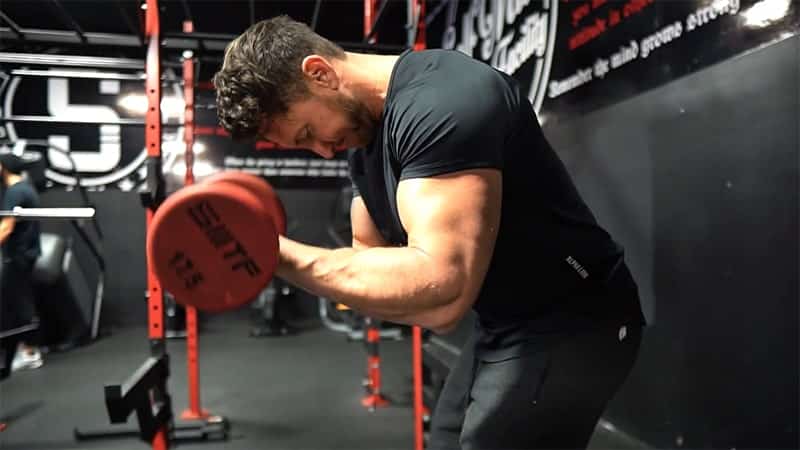
- 1Take the dumbbells and stand up straight.
- 2Bend over slightly and keep your arms in front of the body.
- 3With your palms facing forward, curl the dumbbells up.
- 4Try to avoid moving the elbows up.
- 5Come back down slowly, maintaining tension on the biceps.
Hammer Curl
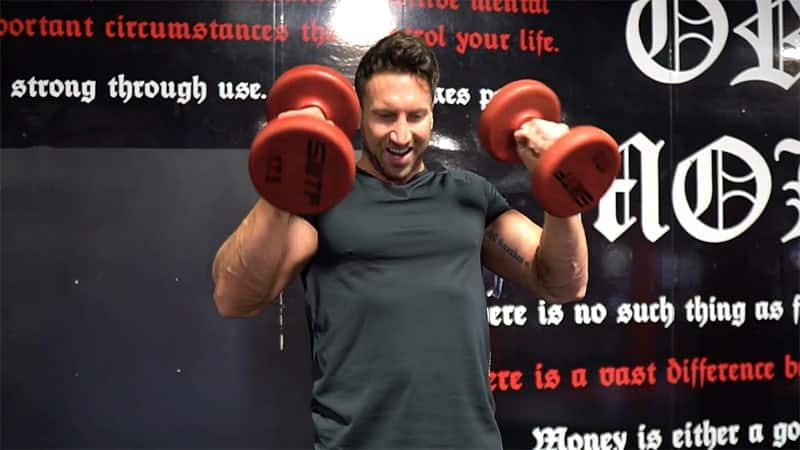
- 1Grab a pair of dumbbells and stand up straight.
- 2Keep the dumbbells on the sides with palms facing the torso.
- 3With no wrist rotation, curl the dumbbells up, contracting the upper arm and forearms up top.
- 4Go back down slowly.
- 5Repeat the movement pattern.
Kettlebell Curl
This bicep curl variation is great for two main reasons. Firstly, the kettlebell is easier to get a grip on. Secondly, it isolates the biceps muscle of one arm at a time, with the extra tension leading to more stimulation for the biceps.
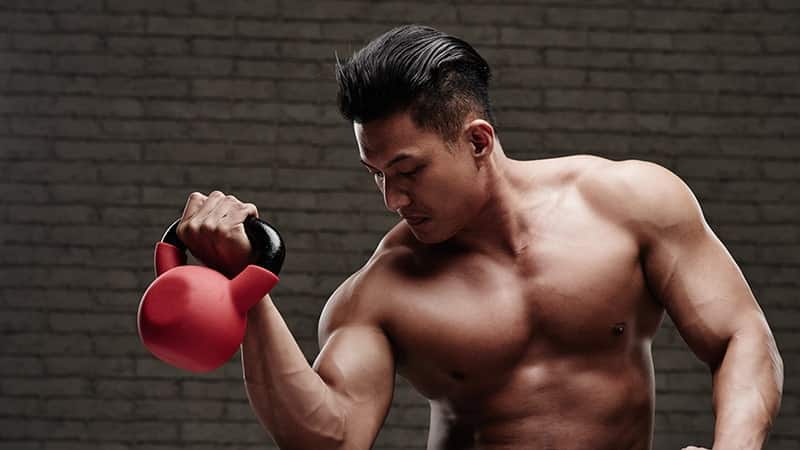
- 1Start with the left arm while your right arm balances your posture.
- 2Hold the kettlebell with an underhand or supinated grip, with your palm facing forward. Make sure your palms face forward throughout the movement.
- 3Curl the kettlebell up toward the shoulder. Squeeze at the top of the movement.
- 4Extend the arm entirely as you move back into the starting position.
- 5Switch arms.
Barbell Curl
Much like the kettlebell curl, the barbell curl variation uses a barbell instead of the usual dumbbell. With a weight change comes a change in the type of flexibility. Unlike with a kettlebell or dumbbell, you need a greater level of flexibility for a barbell curl as your range of motion is more restricted.
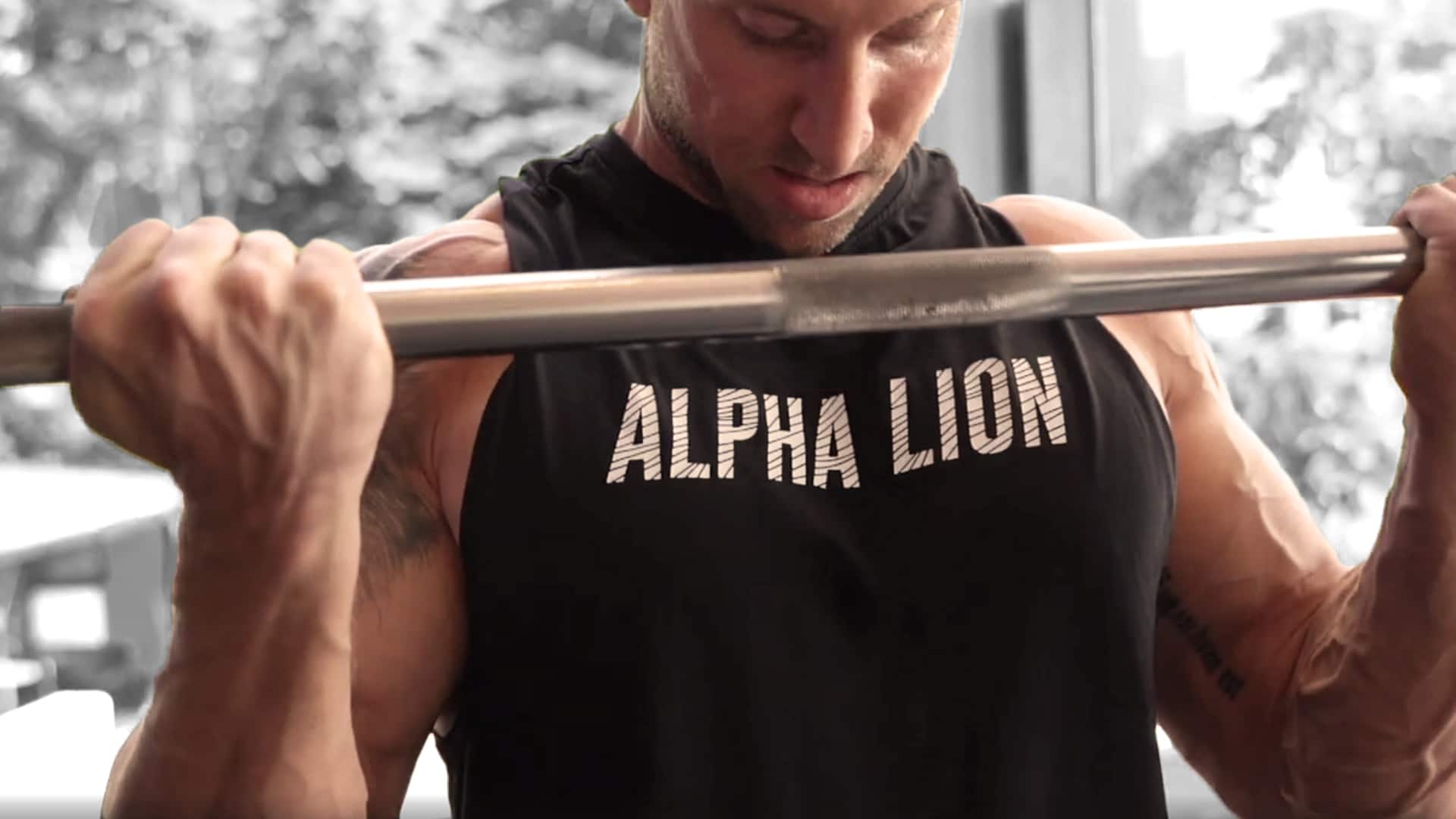
- 1Your starting position will be an underhand grip on the bar that is shoulder-width apart.
- 2Once you get into position, curl up towards the shoulders while keeping your elbows at the side of your body.
- 3Squeeze your biceps while you are at the top of the movement.
- 4Lower the barbell and extend the arms completely, returning to the starting position.
Reverse Curl
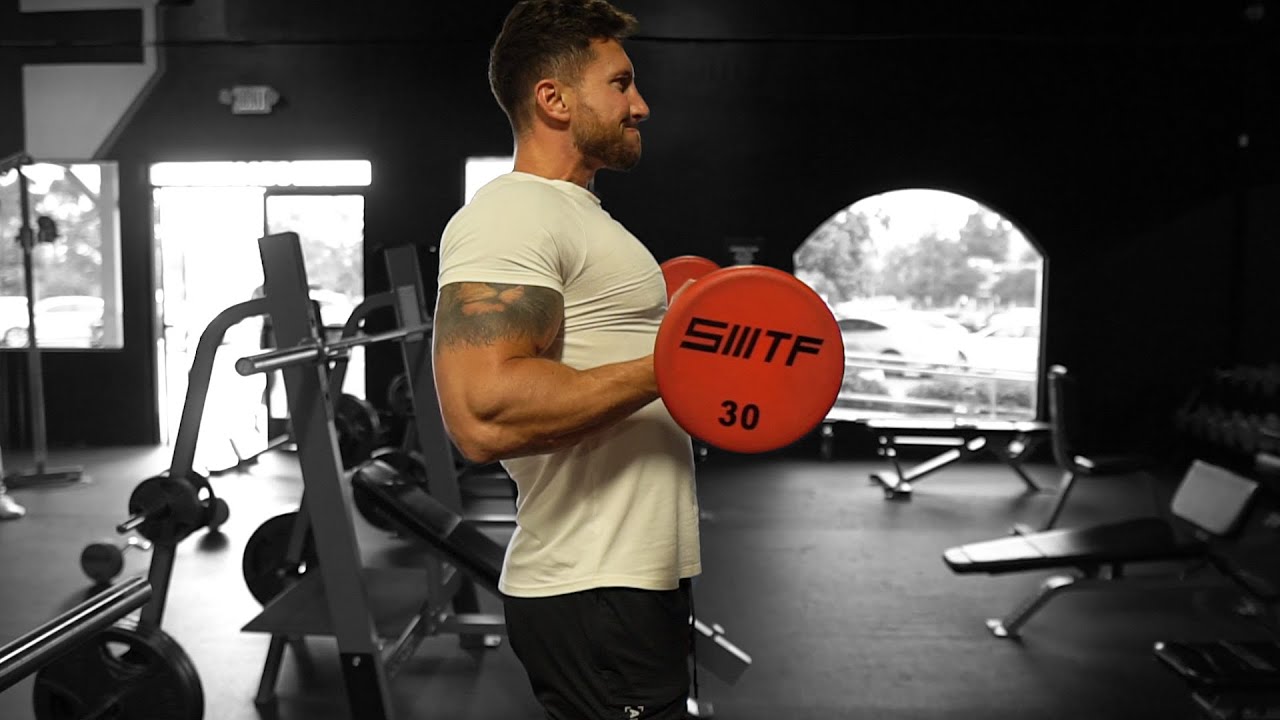
As you might tell by the name, the reverse curl simply reverses the hand's position. Unlike the hammer curl, a reverse curl requires an overhand grip.
This is one of the bicep curl variations that lets you target the biceps and the brachioradialis, which is the muscle in the forearm.
Despite the reversed position of the hands, you still have to curl the dumbbells towards the shoulder.
Cable Curl
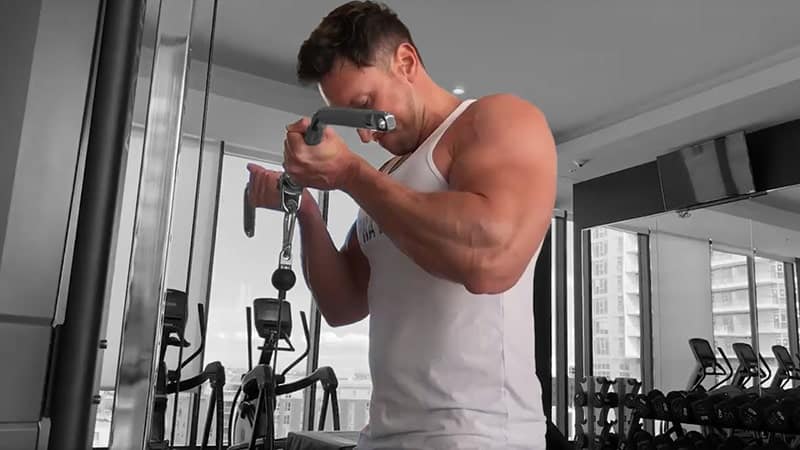
The cable curl requires totally different equipment than the other bicep curl variations. You can't just use free weights. A cable machine allows you to use any type of grip or angle that you need.
There are a variety of grips that you can use for a handle:
- Standard
- Overhand
- Hammer
- Close grip
Alternatively, you can use a straight bar or EZ bar cable attachment. There are several different cable curl variations that you can choose from depending on what area you want to target.
Incline Dumbbell Curl
Incline dumbbell curls require a little more strength and experience. Beginners can't attempt them on the first try as they are highly likely to cause injuries if done improperly. We should also mention that using a lighter weight is beneficial in this variation. You can build up the amount of weight as strength is built.
This bicep curl variation isolates the biceps brachii and can be altered as necessary. You can use a hammer grip instead of the standard grip.
This type of curl also has an added piece of equipment - an incline bench. Just because you get to lie down, however, does not mean the exercise is one of the easy bicep curl variations.
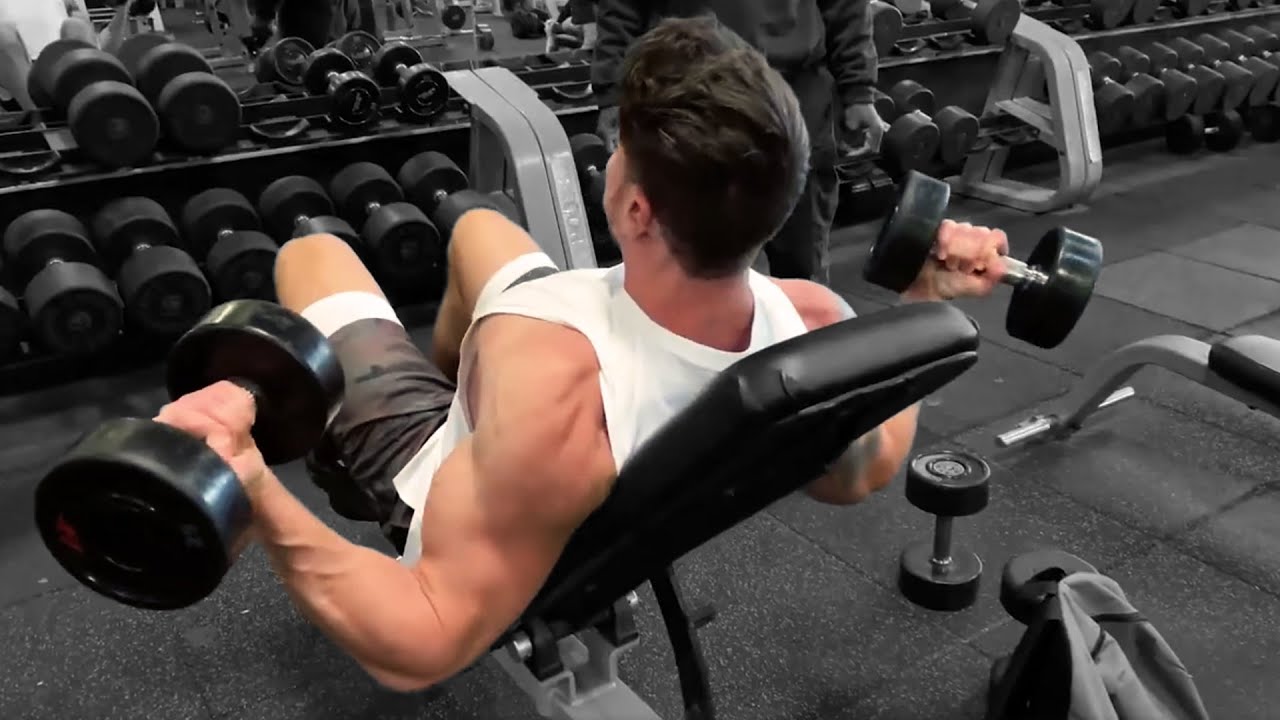
- 1To get started, lie down on the incline bench at a 45 - 60 degree angle. Let your arms hang as you hold a weight in each hand, with your palms facing forward.
- 2Once you have gotten into your starting position, brace your abdominals and biceps muscles as you bring the weight toward your shoulder.
- 3Extend the elbow completely and lower the weight.
Zottman Curl
Out of all the bicep curl variations, the Zottman curl is the one that requires a full range of motion in the wrists. So, it is best to use free weights such as kettlebells and dumbbells.
- 1Start as you would with a standard curl. Keep your palms up and move the weight toward the shoulder.
- 2As you move toward the shoulder, rotate your palms away from your body.
- 3You should engage the muscles in your forearm as you rotate your wrist.
- 4Extend your arm as you lower the weight and return to the original position.
Preacher Curl
The preacher curl is quite versatile in terms of equipment and is one of the most popular bicep curl variations! Preacher curls initially gained fame in bodybuilding and have now seeped into any regular workout routine.
The preacher curl can be done with any type of load, either with one hand or two, as long as you have a preacher bench to isolate the biceps.
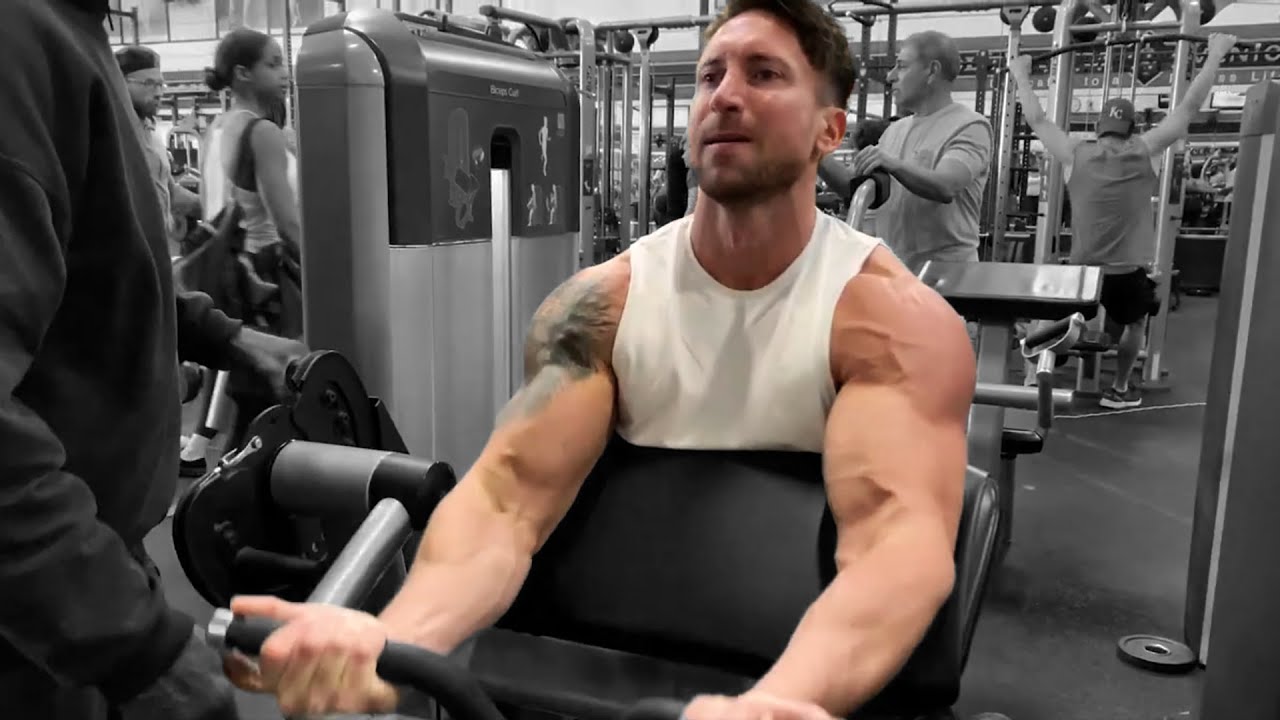
- 1Sit down on the preacher bench and place your triceps on the pad. Make sure they are firmly pressed into the pad as you rotate your elbows and shoulders externally. It is also imperative that your elbows are directly in front of your shoulders.
- 2Once you have achieved the correct positions, retract the shoulder blades by engaging the upper back. Make sure your shoulders are also stabilized.
- 3Grab a bar with a grip closer than shoulder width and curl it toward your shoulders.
- 4Extend your arms and lower the weight back while keeping your upper arms firmly on the pad.
Concentration Curl
A concentration curl is all in the name. They require an extreme focus on the biceps brachii and brachialis.
The curl variation is simple to execute.
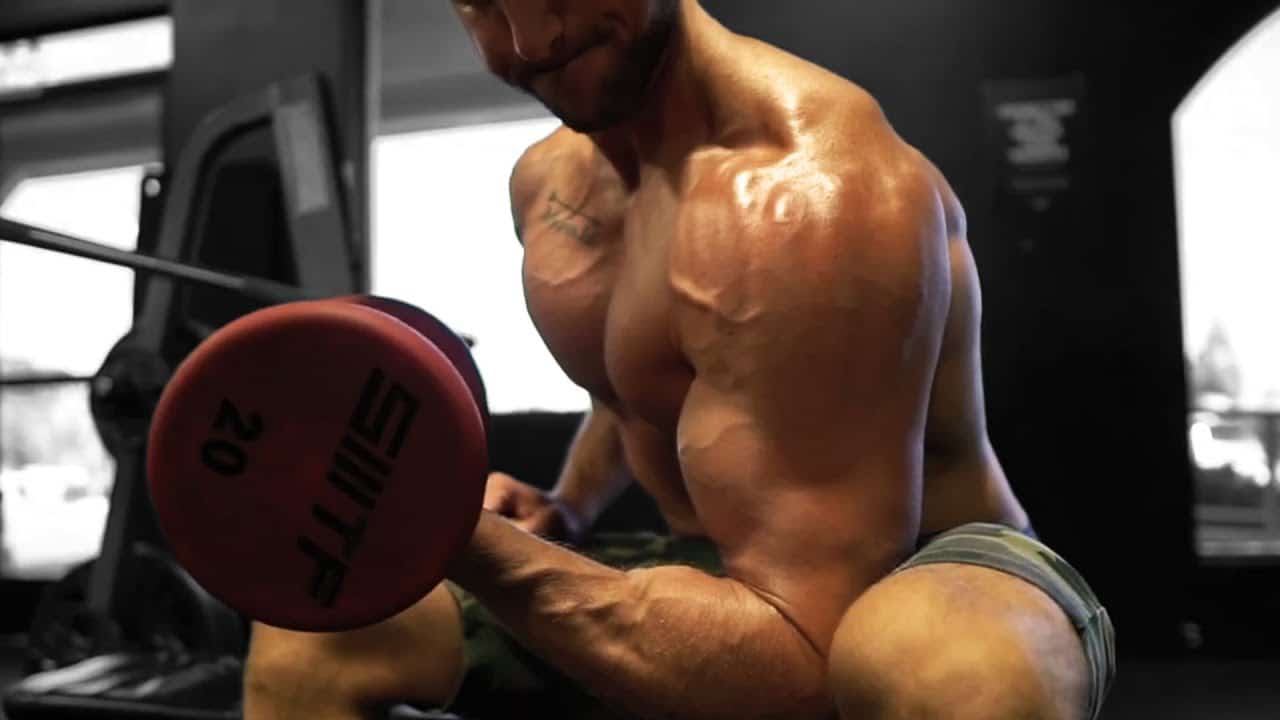
- 1Start with a seated position keeping the elbow on the knee.
- 2Keep the back flat and hold the abdominal muscles tight.
- 3Once you have achieved the starting position, using a standard or hammer grip that is slow and controlled, bring the weight to the shoulders.
- 4Extend the arm completely and lower the weight back to the thigh.
- 5Keep your upper arm fully perpendicular to the ground throughout the exercise.
Mistakes to Avoid
As simple as the exercise is, mistakes can always happen. Not only do mistakes lower the efficacy of the standard bicep curl and all the bicep curl variations, but they can possibly cause injuries!
Since it is better to take precautions rather than look for a cure, here are some mistakes that you might be making during a bicep curl.
Momentum
People tend to start relying on momentum rather than strength to perform a bicep curl or bicep curl variations. This greatly reduces the effectiveness and shows bad form. You'll know you're starting to rely on momentum when you see a slight swing when you hit the top of a curl, and the legs seem to dip slightly. You might also see a slightly overarched lower back.
There are two specific reasons you might start relying on momentum:
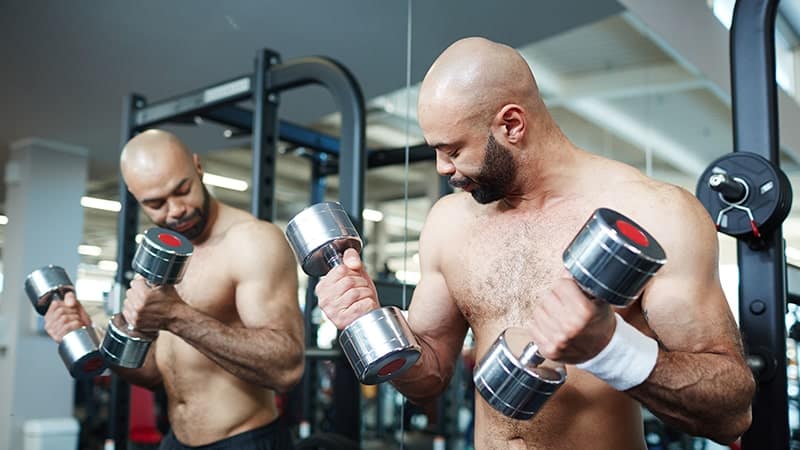
To fix your form, use a mirror to help you focus. You can also sit or get down on your knees to keep yourself from swaying. Focus on your form entirely and activate your core through the different curl variations to keep your body in place.
If that doesn't work, then shift to a lighter weight. A weight that’s too heavy is bound to ruin form and can even lead to injuries.
Rushing
It seems logical that performing bicep curl variations faster leads to the burning of more calories and is overall more effective. However, it depends on which way you're moving faster.
It is better to pull the weight up to your shoulder faster and lower the weight back slowly. This is contrary to the natural urge to do the exact opposite. However, greater control is the best way to make any variation of the bicep curl more effective.
Partial Range
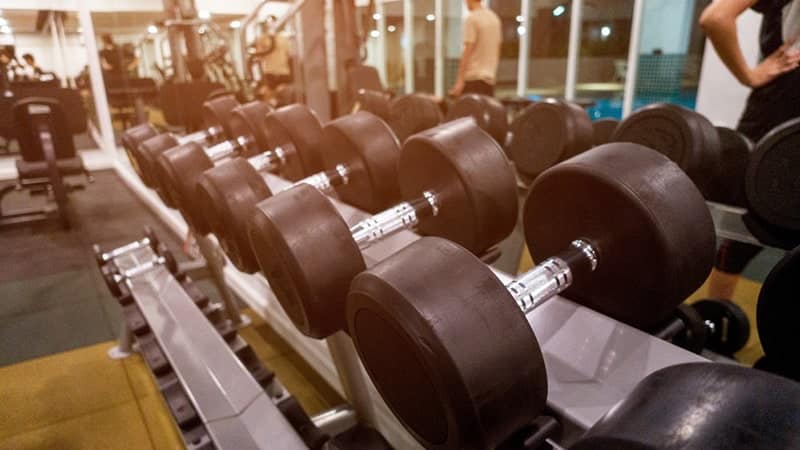
There's no point in picking up a weight you can't even lift with bad form and even worse range of motion. This leads to no actual use of the bicep curl and might even lead to injury.
When performing bicep curl variations, make sure you're bringing the weight all the way to the top and extending your elbow completely when you lower the weight. If you start feeling any pain or find yourself unable to reach the full range of motion, then it might be best to switch to a lighter weight, no matter how bad your ego hurts.
No Variety
Variations are important for several reasons. They add an extra challenge and keep the workout exciting. But, more importantly, different variations hit different muscle groups. By doing different bicep curl variations, you're varying grip to hit the muscles required. Different types of weights also lead to different outcomes. So, make sure to switch it up once in a while.
Wrist Control
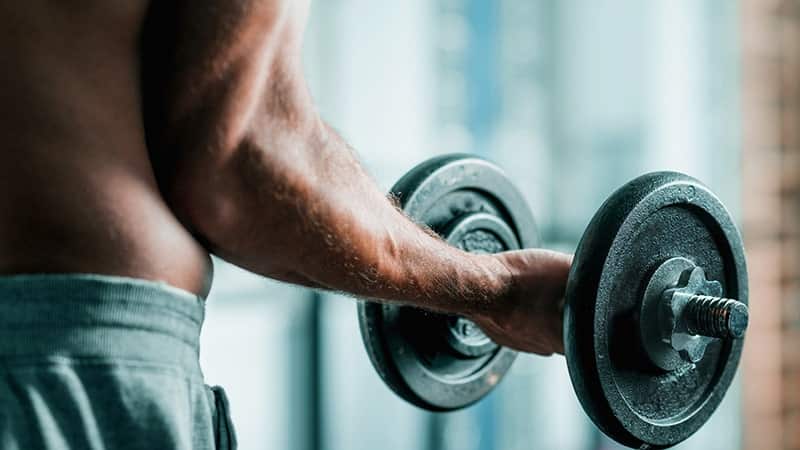
Don't forget to keep your wrists flexed during the whole set. Focusing on your biceps is obviously important; however, making sure you have control of your wrist is also just as important. Not keeping your wrist flexed will lead to your wrist collapsing, especially when you lower the weight.
Keeping a healthy amount of focus on your wrist when doing the bicep curl variations should help with this issue. Just remember, overextending your wrist can lead to injury.
When To Do A Bicep Curl
So, it's arm day, and you're wondering which part of your workout should include a few bicep curl variations. Well, no need to wonder anymore. Ideally, you would do a set of biceps curls at the end of your workout. You could do several compound exercises such as chin-ups and follow them up with a full set of bicep curl variations.
Alternatively, you could follow up the biceps curls with tricep dips so that you're not just working out the biceps muscle but rather the whole arm musculature.
Why Isn't Your Bicep Workout Working?
However great your form is and diligent you are, there might just be no results. Well, there might be several reasons you see poor to few results.
You're not eating enough
You can't build muscle if you aren't eating enough. To get big, you have to be big all over, which means eating more. Get in touch with a dietician and see if you can work out a diet plan to help you get those gains.
You're doing arm day every day
A plant might grow if you water it every day, but that certainly isn't true for your muscles. You have to let your muscles rest after a workout, otherwise, you're not going to see the results you want. A few days after a workout is when the muscle gets stronger and bigger. So, let your muscles heal and do as they need, and don't rush the process.
You're neglecting your triceps
There's no point in working out just your biceps if you're truly looking for big arms. This will leave you with a disproportionate arm. The triceps are what give your arms their size. Without them, your arms will not look proportionate. The triceps make up two-thirds of the arm, so make sure you're working them out alongside the biceps.
You're not switching it up
Just like you need to switch up the different bicep curl variations, you also need to switch up the volume you're doing. If you're consistently doing 3 sets of 8 reps, switch it up after 3-4 weeks. Maybe try doing as many as you can using a band or larger weights.
Wrap Up
When it comes down to it, a bicep curl is one of the best exercises for your arms and biceps. The different bicep curl variations ensure that the entire arm and its muscles are also worked out alongside the biceps. They also add a bit more of a challenge to your everyday workout.
Let's face it, with the number of bicep curl variations that exist, you won't be bored for a while!

